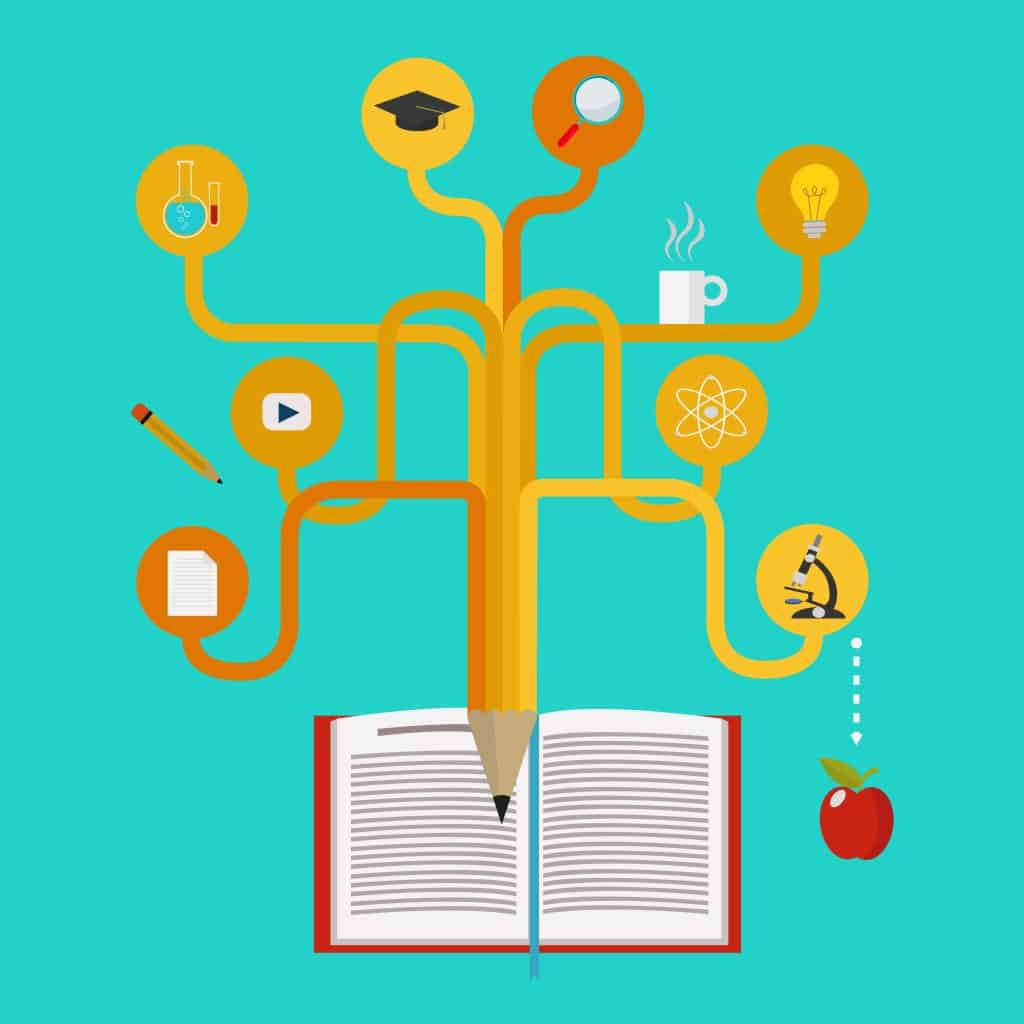Why Repetition in Learning Leads to Mastery
Oliver Cooper August 5, 2025
In 2025, as technology continues to change the way we work and learn, one principle remains constant: repetition is essential for mastery. Whether you’re learning a new language, a musical instrument, or advancing your career through new skills, repetition is the foundation upon which expertise is built.
While modern tools like AI, gamification, and immersive learning environments are making education more engaging, they still rely on the core principle of practice. This article will explore how repetition leads to mastery, the latest trends surrounding this technique, and why it’s becoming an even more powerful strategy for learning in today’s world.

The Science Behind Repetition and Mastery
1. The Role of Neuroplasticity in Learning
The human brain has an incredible ability to change and adapt—this phenomenon is known as neuroplasticity. Neuroplasticity refers to the brain’s ability to reorganize itself by forming new neural connections throughout life.
When you repeat an activity or concept, your brain strengthens the neural pathways associated with it. In fact, a 2025 study by Harvard University revealed that consistent practice and repetition can physically alter the brain’s structure, improving memory retention and skill acquisition.
Repetition, especially when combined with spaced learning (revisiting material at increasing intervals), can lead to long-term retention and expertise. As you practice a skill repeatedly, the connections in your brain become more robust, making it easier to recall and apply that knowledge in the future.
2. The Power of Muscle Memory in Skill Mastery
In fields that involve physical activities, such as sports or playing an instrument, repetition builds muscle memory. Muscle memory is a form of procedural memory that allows us to perform tasks with minimal conscious effort after repeated practice.
For instance, when learning how to play the piano, the more you practice finger placement, scales, and songs, the less you need to think about the mechanics. Your muscles “remember” the movements, and the task becomes automatic. This same process applies to many other skills, including typing, driving, or even coding.
A 2025 report from MIT’s Brain and Cognitive Sciences Department emphasizes that repetition of complex tasks builds automaticity, freeing up cognitive resources to focus on other aspects of the task, such as creativity and strategic decision-making.
How Repetition Leads to Mastery in Today’s World
1. Repetition in the Age of AI and Technology
In today’s digital era, AI-driven learning platforms and personalized education tools have revolutionized how we approach repetition. These technologies are designed to adapt to your learning pace and repeat tasks until mastery is achieved.
For example, apps like Duolingo for language learning or Coursera for professional development use spaced repetition algorithms to ensure that you revisit words, phrases, or concepts that are most difficult for you. These platforms offer a personalized experience, reinforcing weak areas through repetition, ensuring that you don’t forget what you’ve learned.
In 2025, the integration of AI with traditional learning methods has made repetition more effective by tailoring the experience to individual learning styles and needs.
AI in Repetition:
- Smart Repetition Algorithms: Adjust the difficulty and timing of repetition to enhance memory retention.
- Interactive Feedback: AI platforms give instant feedback to correct mistakes in real-time, accelerating the learning process.
2. The Importance of Consistent Practice in Skill Acquisition
Repetition isn’t just about repeating the same task; it’s about consistent, deliberate practice. Deliberate practice focuses on improving weak areas while continuously refining strengths. In 2025, experts argue that the most effective learning happens when individuals push themselves just beyond their current abilities—an idea famously explored in Outliers by Malcolm Gladwell, who stated that achieving 10,000 hours of practice is the key to mastery.
Repetitive practice in areas such as coding, data analysis, or project management leads to automaticity, and with time, you perform these tasks with increasing efficiency and skill. Consistency in practice also helps maintain focus and motivation, two key factors that propel learning.
Examples of Consistent Practice:
- Sports: An athlete practicing drills regularly to improve technique.
- Music: A musician practicing scales and songs until they become second nature.
- Career Skills: A software developer coding regularly to hone problem-solving and technical abilities.
3. Spaced Repetition and Its Benefits
Spaced repetition is a specific method of repeating information at increasing intervals, which has proven to significantly improve long-term memory retention. This technique, rooted in Ebbinghaus’ forgetting curve, is especially relevant in 2025, as people look for more effective ways to retain large amounts of information, whether for exams, professional development, or personal growth.
Apps like Anki or Quizlet utilize spaced repetition to help learners reinforce vocabulary, historical dates, and formulas over time. Research shows that revisiting information at strategic intervals boosts retention rates by over 30% compared to traditional rote memorization methods.
4. The Role of Repetition in Emotional Resilience
In addition to cognitive and physical skills, repetition also plays a role in emotional resilience. Repeating positive habits and behaviors helps you develop a stable mindset, especially during challenging situations. In fact, mental health professionals recommend the practice of repeating positive affirmations, meditation, or mindfulness exercises to build emotional resilience and reduce stress.
A 2025 study by the University of California found that people who practiced emotional regulation techniques through repetition reported better mental health and were able to handle stressful situations with greater ease. Just as repetition can train the body, it can also train the mind to cope with anxiety, uncertainty, and failure.
How to Make the Most of Repetition in Your Learning Process
1. Set Clear Goals and Milestones
To maximize the benefits of repetition, start by setting clear, measurable goals. Whether you’re learning a new skill or mastering a subject, break your objectives into manageable chunks. This approach helps you stay motivated and track your progress.
Goal Setting Tips:
- Use SMART Goals: Make your goals Specific, Measurable, Achievable, Relevant, and Time-bound.
- Track Progress: Use apps or journals to track daily or weekly milestones.
- Celebrate Small Wins: Recognize progress to stay motivated and build momentum.
2. Incorporate Feedback Loops
As you repeat tasks, it’s essential to incorporate feedback to guide your learning. Constructive criticism and self-assessment will help you refine your approach and avoid reinforcing mistakes.
How to Incorporate Feedback:
- Peer Reviews: Seek feedback from colleagues, mentors, or experts in your field.
- Self-Reflection: Take time after each practice session to assess what went well and what could be improved.
- Use Data: Track performance and compare it against your goals to identify areas for improvement.
3. Practice with Intention
Repetition without purpose may not lead to mastery. It’s crucial to practice with intention. Every repetition should aim to challenge your current skill level and focus on improving weak areas. Focused practice—even in short bursts—can be more effective than hours of mindless repetition.
Tips for Focused Practice:
- Challenge Yourself: Focus on areas where you’re struggling rather than what comes easily.
- Vary Your Practice: Change up your routine occasionally to avoid stagnation and maintain interest.
- Stay Consistent: Dedicate time regularly to practice; even a small, consistent effort goes a long way.
Conclusion
In 2025, repetition is still the key to achieving mastery in any skill, whether cognitive, physical, or emotional. The ability to repeat tasks intentionally, receive feedback, and gradually challenge yourself is at the heart of expert performance. As technology advances, learning tools like AI, spaced repetition, and feedback-driven platforms are making repetition even more effective, ensuring that mastery is within reach for anyone willing to put in the work.
Remember, mastery doesn’t happen overnight. It’s a journey that requires consistent, focused practice. By embracing repetition in all aspects of learning, you’ll unlock the potential to master any skill and achieve long-term success.
Reference
- Neuroplasticity: Your Brain Rewires Itself, https://www.neuroskills.com
- Muscle Memory & Procedural Efficiency, https://en.wikipedia.org
- Spaced Repetition & the Spacing Effect, https://en.wikipedia.org







